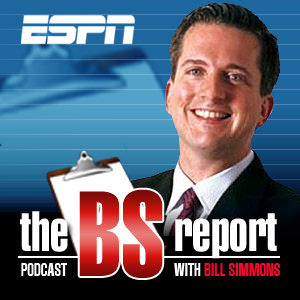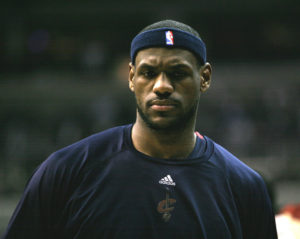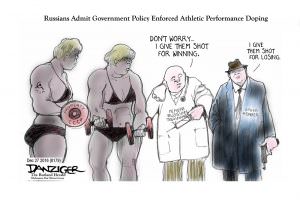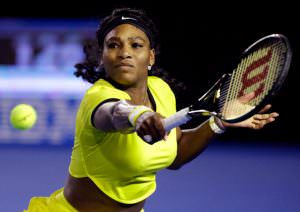What ESPN’s Bill Simmons Superdeluxe Media Empire Means for Facts, Fans and Sports
Going bonkers, lionizing winners and dumping on losers is fun, even if the cycle is accelerating to absurdity and beyond with modern 24/7 reportage That’s today’s price of fame Privileged as they are, today’s starry-eyed young athletes pursue their dream through a driving shitstormThat’s today’s price of fame.
Kobe Bryant sits astride his world, just as he envisioned it like any boy growing up in a land where dreams come true, wanting only to be remembered as the best there ever was, fictional (Roy Hobbs) or real (Ted Williams).
Williams played in the middle of the last century when Bernard Malamud wrote “The Natural,” his book about the craziness one so gifted inspires.
Fifty years later, Bryant lives Malamud’s book every day. The NBA title he and his Lakers just won is his shot into the light standard setting off the fireworks in the movie version, proving his greatness forever, or until Nov. 1, whichever comes first.
Their world runs on its own calendar. A season feels like a lifetime, a four-year World Cup cycle like a generation.
It’s not about perspective, but, like all drama, suspension thereof. When the Dallas Cowboys’ Duane Thomas was impertinent enough to ask, “If it’s the ultimate, how come they’re playing it again next year?” before the 1972 Super Bowl, he was dismissed as a poor soul who couldn’t recognize the good thing he had.
(Indeed, Thomas was out of the NFL within three years after becoming the game’s MVP, but was lucid enough to wind up living quietly as an avocado farmer in Southern California.)
Going bonkers, lionizing winners and dumping on losers is fun, even if the cycle is accelerating to absurdity and beyond with modern 24/7 reportage.
Eclipsed by young LeBron James, Bryant was ignored during the season, when he wasn’t being written off as “a degenerate three-faced narcissist” by Rolling Stone’s Matt Taibbi, who noted Kevin Durant had also passed Kobe, or was about to.
The playoffs brought outright denunciations in the local press with Los Angeles Times columnists Bill Plaschke and T.J. Simers accusing Bryant of “pouting” in a first-round loss in Oklahoma City.
If Bryant was playing with a broken finger on his shooting hand and a sore knee, which would both require surgery, little was made of it until he emerged as champion of champions.
Bryant’s accomplishments have always been discounted after eight seasons in Shaquille O’Neal’s giant shadow, three more in eclipse after Shaq left, and a persona as prickly as Shaq’s was fun.
Titles Nos. 1-3 from 2000 to 2002 — He played with Shaq.
No. 4, 2009 — Maybe Kobe and LeBron can meet in the Finals next spring!
No. 5 — How could we have doubted you, Kobester?
For the maraschino cherry atop the sundae of his career, Bryant’s fifth title of the decade broke his tie with O’Neal and Tim Duncan, stamping it as the Age of Kobe … making it the first age named after a player who was shunned for most of it.
That’s today’s price of fame. Privileged as they are, today’s starry-eyed boys pursue their dream through a driving shitstorm.
In what would have been ironic but is now common, James received his second MVP trophy in a row before Game 1 of the Cavaliers’ second-round series against Boston.
Unfortunately, he then turned mortal, averaging just 27 points, 9.3 rebounds and 7.2 assists as the presumed Dead Celtics Walking arose to stun James’ Cavaliers in six games.
The world announced a new consensus:
James was beneath contempt.
Ignoring James’ injured right elbow, Fox Sports’ psychologically attuned Charlie Rosen, a former Phil Jackson assistant coach, listed three possibilities for LeBron’s fall:
- He himself doesn’t believe the overwhelming hype about his own game, and there’s an undercurrent of self-doubt working in his subconscious.
- Or, he’s simply the king of chokers.
- Or, his bags are already packed and he’s headed out of town.
Or maybe it was the elbow the stoic James acknowledged sometimes “locked up,” which would explain why he started going predominantly to his left and, on the few occasions he got to the basket righthanded, never made a strong move like his old runaway-train self.
If James’ seven-year career as a dogged competitor entitled him to any benefit of doubt, little was forthcoming.
Yahoo’s Adrian Wojnarowski called him a “narcissist” who “quit on his teammates in Game 5 [which] made it easy for the rest of them — and James — to quit in the final minutes of Game 6 … a young Alex Rodriguez, so insecure with himself and his MVP awards, so desperate to find validation in the courtship of free agency.”
Esquire’s Scott Raab, noting his Cleveland roots, said he expected James to abandon the city, and “if so, good riddance.”
ESPN2’s Skip Bayless gave James a “D as in Dog-minus” for his 27 points, 19 rebounds and 10 assists in Game 6, insisting, as Bayless had in his inimitable veins-bulging style, it again showed “he’s Robin more than Batman, Pippen more than Jordan.”
Energizing the process, or turning it upside-down, fans now participate, writing blogs and posting comments and videos. If it’s more democratic, the old marketplace of ideas is now more like a withering crossfire of ideas, or emotions, however primal. With the ability to contribute anonymously, the dialogue is to discourse what road rage is to driving.
If nothing has changed — fans always ranged from mere chauvinists to those reverting to some evolutionary forerunner — everything is illuminated.
It’s no longer journalism, however overheated or comic. It’s the entire process of thought, resembling Freud’s id, ego and superego. The traditional press is the socialized ego. The blogosphere, where no one is accountable, or, often, even identified, is the naked id. The superego is the reader/viewer, trying to reconcile the two.Of course, it’s still just a sports debate. Anyone who can’t tell that Bryant and James are the NBA’s best players and two of its best ever isn’t worth arguing with, but, as they say of government work and rock ’n’ roll, “It’s close enough for sports writing.”
What’s scary is how much our politics resemble sports as the audience divides into smaller and more irreconcilable niches, like opposing teams, rather than parts of a larger entity with shared purpose.
Between data points — elections in politics, championships in sports — there’s no capacity to agree on anything. Perception is shaped by the available numbers, even if they’re only snapshots in time with arguable long-term significance — polls in politics, regular-season games in sports.
Compromise, the goal in politics, is the open ground in a crossfire, featuring pundits/hams like Glenn Beck, the former “Wacky Morning Zoo DJ,” and Keith Olbermann, the former ESPN anchor.
As George Will noted of Beck, “It’s the hour of the entertainer.” Unfortunately, with structural changes in media as well as disagreement on issues turning the conversation into a howling din, it may last longer than an hour.
As in sports, the mistake now is taking our political process seriously, as pundits level the same old charges of “losing control of the message” or “breaking promises,” as if the partisan rift hasn’t widened until we have government by super-majority, in the rare times we have super-majorities, and messages aren’t DOA.
The sports blogging revolution suggests how breathtaking the pace of change is.
If bloggers have overrun the palace, one of the landmarks was ESPN’s 2002 hiring of Bill Simmons, an underground icon in the Dodge-City-on-a-Saturday-night world of Boston sports blogs.
Mainstream writers hated the word blog from the moment they learned it stood for “web log” — whatever that meant — before they were told they too would have to do it.
Unfortunately, the traditionalists, represented by Buzz Bissinger, who won a Pulitzer for his painstakingly researched “Friday Night Lights,” tipped off the possibility there was more on their minds than trampled standards — like encroaching age and irrelevance — in a 2008 panel discussion.
Showing who had the bad manners, Bissinger told Deadspin editor Will Leitch, “I really think you’re full of shit,” then, preparing to read a post by “Big Daddy Balls,” sputtered, “Here’s insight in blogging, because it … REALLY … PISSES … THE … SHIT … OUT … OF … ME!”
If the traditionalists missed it, there is no battle going on for pre-eminence.
It’s strictly generational, with the young seeking spokesmen of their own with standards of their own, or no standards.
Not that it’s a new phenomenon. In the decades since my youth faded as Jefferson Airplane broke up and tattoos became fashion accessories, I’ve thought of it as Payback for Elvis.
In a sign of the times, Rick Reilly, the most gifted sports writer of his generation, whom ESPN hired away from Sports Illustrated with a $17 million five-year deal, now bobs in the wake of Simmons, who sits in the stands and rarely meets the people he writes about, much less interviews any of them.
Suggesting Simmons’ hard-dollar value to ESPN is in the millions, Deadspin noted that his column averaged 1.4 million page views and 460,000 unique visitors monthly with 2 million downloads for his podcast and 1.2 million Twitter followers.
If Simmons is actually an essayist writing about sports, it doesn’t disqualify him from being taken seriously, like Roger Angell.
Simmons can’t be taken seriously because he isn’t serious, only occasionally acknowledging his bold pronouncements that turn out wrong or, as is often the case, embarrassing, in a stream-of-consciousness chronicle of his mood swings from trash-talking jubilation to nothing-to-live-for despair.
With stardom comes the added inconvenience of becoming what he made his reputation savaging. A hero to the editors of Deadspin, once similarly locked out of shrinking, hiring-frozen traditional journalism, Simmons is now part of the ESPN empire, the site covered with BS-style irreverence.
When Simmons indulges himself in what editor A.J. Daulerio, Leitch’s successor, calls “his incessant whining about ESPN’s management of him,” down he goes.
“He was mind-blowing for a lot of people who were not accustomed to being able to write that way on such a large platform,” says Daulerio. “I think he really gave a voice to a lot of people who never could have been a columnist for a daily newspaper if they played by the traditional rules. …
“We’ve busted on him a lot. That’s the perspective he’s trying to come to terms with, that he’s no longer the underdog. He’s arguably the most popular sports columnist in America. …
“Will [Leitch] kind of suffered through the same thing. It’s almost like you feel you’re going to kill your idols a lot of the time when you criticize him, but he’s just like anybody else. …
“There are going to be certain things we criticize but there’s always a level of respect there because most of us who do this know that our jobs wouldn’t be possible without him [Simmons].”
The NBA Finals featured a rare interface with Simmons coming out of the stands and joining the press corps for the matchup between his beloved Celtics and the hated Lakers.
Actually, despite his protestations of devotion, Simmons has never believed in this renaissance, abandoning the Celtics at every turn, as when he lampooned Coach Doc Rivers in the 2008 second-round series against Cleveland (“DOC: All right, guys, listen up. I want to go over the game plan so we’re clear on everything. RAY ALLEN: We have a game plan tonight?”)Cooling down “thanks to four shots of whiskey and a couple of Vicodin,” Simmons apologized (“I never wanted to become the proverbial turd in the punch bowl for a successful Boston team. After all, that’s Dan Shaughnessy’s job”), submitting it showed the outlook had been so bleak that “one of the team’s most avid fans briefly lost his mind before regrouping and continuing to support the team for the rest of the playoffs.”
Actually, the series was tied, 2-2, the Celtics still had home-court advantage and the Boston Globe’s Shaughnessy is deservedly respected for his determinedly anti-jingo approach that exposes him to heavy fire from the yahoos in the local blogs.
Meanwhile, “one of the team’s most avid fans” was off the bandwagon again by the Finals, predicting a Laker victory.
The Celtics won, resoundingly, 4-2.
By this spring, Simmons had given up hope for his battered team. Severing ties, he wrote, “I know the Celtics are going to lose in Round 1,” calling them “a decrepit, non-rebounding, poorly coached, dispirited, excuse-making, washed-up sham of a contender.”
The Celtics beat Miami, 4-1.
When they then surprised everyone, winning Game 2 in Cleveland to tie the series, 1-1, Simmons returned with no mention of his miscalculation.
He lasted one game, which the Cavaliers won in Boston, noting his father was so dismayed he sold his Game 4 tickets back to the team for face value.
Apparently mood swings run in the familty, but the son was back for the Game 6 finale, after the Celtics won Games 4 and 5 — at least in spirit, orchestrating anti-James chants in the TD Garden (“New York Knicks! New York Knicks!”) … from his couch in Los Angeles, via Twitter.
By the Finals, Simmons was a born-again die-hard, and hardly an apologetic one, demanding a courtside seat — with the rest of the press in the stands behind the baseline — saying he needed it to do his job.
He got it, too, a row behind the Celtic bench in Boston, after ESPN’s people went to the NBA’s people, who overruled their PR staff.
Actually, Simmons’ job didn’t even require him to write stories, just to conduct in-game chats on his handheld.
So, anyone who believes in karma now knows why the Celtics fell short.
Breaking Simmons’ oft-stabbed heart yet again, the Celtics went back to Los Angeles leading, 3-2, and were up by 13 points in the third quarter of Game 7.
[Pregame]
Andy B: What song best encapsulizes your feelings right now?
sportsguy33: Eminence Front by The Who— the video more than the song….
[First half]
sportsguy33: Timbaland sitting corner courtside with a producer Polow DaDon (sp?) … my NBA.com buddy doing their Twitter sitting next to me just tried to spell his name and we both started laughing….
[Second half]
sportsguy33: Rondo floater… Celts by 11. Timeout Lakers. Crowd in complete and utter shock. I just silently high-fived myself while doing 4 imaginary fist pumps….
sportsguy33: Pretty lefty hook by Gasol. crowd now alive. Bos by 8….
sportsguy33: BTW, I lost my sense of humor about 30 mins ago. This diary has as many laughs as “My Sister’s Keeper.”…
sportsguy33: The posts are about to dwindle… I am devastated. What a giveaway. Blow a 13-point lead in a Game 7??? When the other team’s best player is crapping the bed? They can’t let this happen….
sportsguy33: Text from my Dad: “This could be the night that I have the big one.”
sportsguy33: I no longer want to be here. Is this what hell is like?
It’s exactly what hell is like forever, or until the next morning, whichever comes first.
Mark Heisler is a sports columnist for the Los Angeles Times and Truthdig. His writing has been honored by the basketball hall of fame and he just won a 2010 L.A. Press Club award for his Truthdig column, “It’s Not About Tiger Woods, It’s About Us.”
Your support matters…Independent journalism is under threat and overshadowed by heavily funded mainstream media.
You can help level the playing field. Become a member.
Your tax-deductible contribution keeps us digging beneath the headlines to give you thought-provoking, investigative reporting and analysis that unearths what's really happening- without compromise.
Give today to support our courageous, independent journalists.




You need to be a supporter to comment.
There are currently no responses to this article.
Be the first to respond.